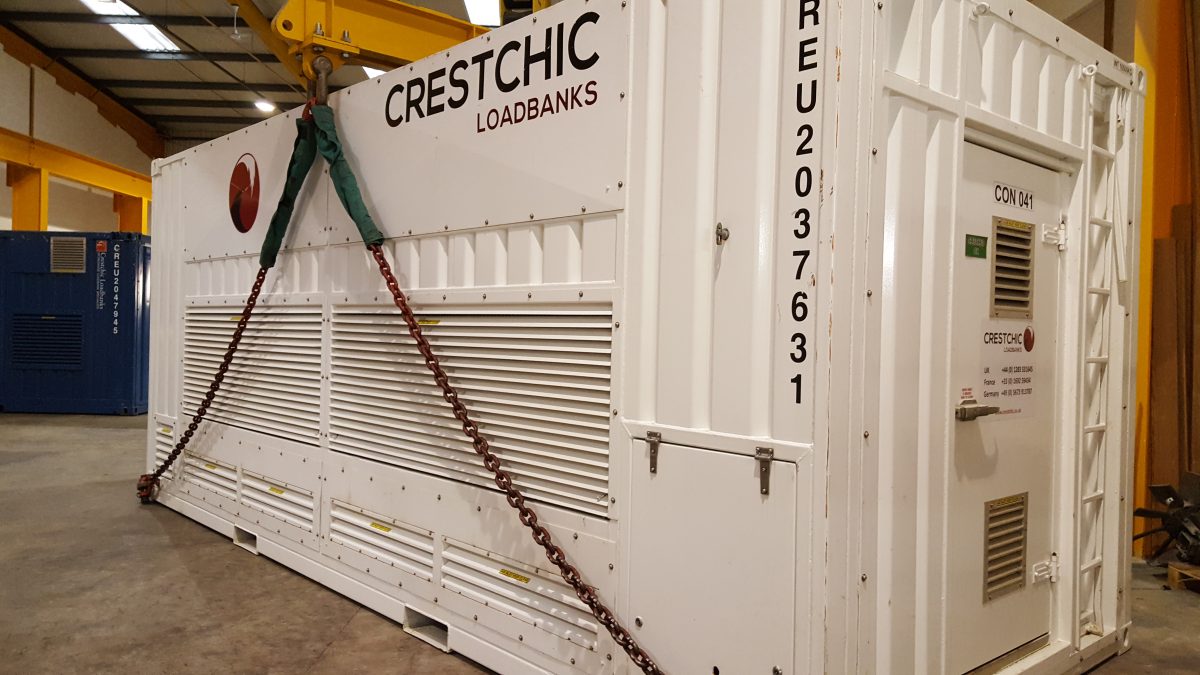As data centres across the world focus on a switch towards green power and reduced dependence on fossil fuels, the Uptime Institute, an advisory organization focused on improving the performance, efficiency, and reliability of data centres, has issued a warning about reliability. Paul Brickman from Crestchic Loadbanks explores the role of reliable backup power systems in the race towards green power.
In his blog on the Uptime Insitute website, Jay Dietrich explains: “The impact of renewable energy on the grid operator’s economics, and on the critical issue of grid reliability, is not well understood by many observers and energy buyers… The problem stems from the volatile balance of supply and demand. The intermittent nature of wind and solar generation moves the electricity markets in unexpected ways, driving down wholesale prices as renewable generation capacity increases. These price movements can stress the business model of reliable generation, which is needed to ensure continuous operation of the grid.”
While Dietrich’s blog focuses primarily on economics, reliability is undoubtedly one of the key issues. Balancing supply and demand for variable sources of power is a known issue. Wind farms, solar plants and renewable energy facilities all use generators as a reliable source of backup power – providing reliable back-up to balance the grid. As the overall supply moves more towards green power, grid balancing has become an increasingly more demanding task for grid operators. The inherent lack of system inertia created by renewable energy, unlike that produced by traditional large rotating thermal stations, makes the system frequency increasingly difficult to keep stable. This provides a real challenge for the system operators, whose role it is to closely match the supply of energy to demand – a challenge that can result in expected downtime.
In order to meet the demand and avoid temporary blackouts, levels of power generation, including voltage and frequencies, must be managed so that they are exactly equal to levels being used. When harnessing natural sources of power, which are reliant on the wind blowing and the sun shining, managing a stable and constant supply can be more challenging. In this instance, back-up power sources can be invaluable in helping to balance the supply.
“For data centres, ensuring continuity and avoiding downtime is key. ” Paul explains. “With an expectation of 100% uptime, data centres simply can’t fulfill their role without a reliable, stable source of power. Most operators accept that some sort of UPS or back-up generator is a key requirement in their continuity planning. Yet, when gensets are installed for back-up power generators in the event of an undersupply, it is absolutely critical that they actually work when called upon.”
Wherever there is standby power, there is also a need for a load bank. This critical piece of equipment is used to create an electrical load that imitates the load that a generator would use under operational conditions. By testing and maintaining the generator using a load bank, operators can ensure that it is fit for purpose in the event that it needed.
Paul concludes “The increase in renewable energy generation brings with it a risk of fluctuations, which has undoubtedly lead to more sites wanting generators. However, simply having them on site isn’t enough. The only way to guarantee the reliability of backup gensets is to test them through and on a regular basis using a loadbank. Failing to do so is a sure route to unplanned downtime.”
Dietrich’s blog reinforces Paul’s advice: “To deal with this volatility, the system operator needs to have a capacity plan, using economic signals or other strategies to ensure there is sufficient capacity to meet demand under all possible mixes of renewable and conventional generation.”
For more information on load banks and the critical role of testing, visit www.crestchicloadbanks.com
Northbridge Industrial Services (LON:NBI) has two core activities, Crestchic Loadbanks and Tasman Oil Tools. Crestchic is a specialist electrical equipment business which manufactures, sells and rents loadbanks and transformers from its base in Burton on Trent and has depots in France, Germany, Belgium, UAE and Singapore. Crestchic also has satellite locations in China and the USA.






































